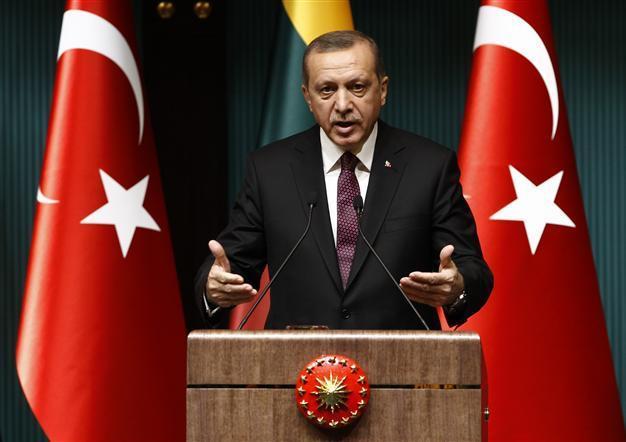Official position gave Erdoğan ‘distinct advantage’ in presidential elections, says OSCE
ISTANBUL

AA Photo
The use of the Prime Ministry position by current President Recep Tayyip Erdoğan and the one-sided reports in the media gave him an unfair advantage compared to the other two candidates in the presidential election race in August, according to a new Organization for Security and Cooperation in Europe (OSCE) report.The report, titled “Limited Election Observation Mission Final Report” and published by the OSCE’s Office for Democratic Institutions and Human Rights (ODIHR) branch, stated that while all the three presidential candidates generally campaigned freely and actively, Erdoğan’s privileges gave him a “distinct advantage” over the other two candidates.
“While all three candidates actively campaigned, the campaign of the prime minister was the most visible. The misuse of administrative resources and the lack of a clear distinction between key institutional events and campaign activities granted him an undue advantage,” read a part of the report published in late November.
The report stated that among the five monitored TV stations, three of them, which also included the state-run TRT1, significantly broadcasted in favor of Erdoğan.
“The overall disproportionate television coverage, the main source of political information, in favor of the prime minister, including the live broadcasting of his events and speeches, coupled with the limited amount of political advertising of the other two candidates, gave the prime minister a distinct advantage and limited pluralistic information on political alternatives for voters. The framework does not provide for a clear definition of the impartiality requirement for broadcasters, and state institutions failed to redress, in a timely manner, unbalanced media coverage,” stated the report, adding that direct debates between candidates would have brought more balance.
Erdoğan’s victory in the Aug. 10, 2014 presidential elections was a milestone in Turkey’s history, as the president was directly elected for the first time by citizens’ votes. The joint candidate of the opposition Republican People’s Party (CHP) and the Nationalist Movement Party’s (MHP), Ekmeleddin İhsanoğlu, and Selahattin Demirtaş, the Peoples’ Democratic Party (HDP) candidate, were the other two candidates running for the presidency.
Erdoğan, who controversially did not step down from his Prime Ministry position during the election campaign, received 51.8 percent of the votes, while İhsanoğlu received 38.5 percent and Demirtaş 9.8 percent.
















